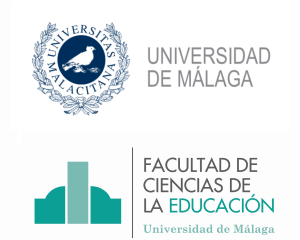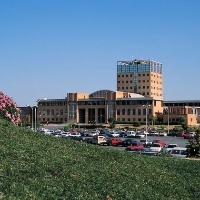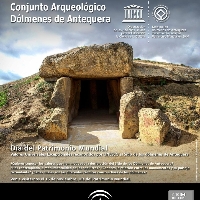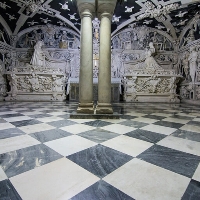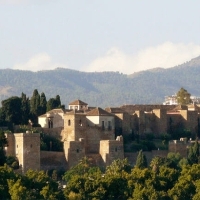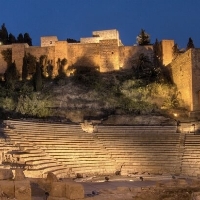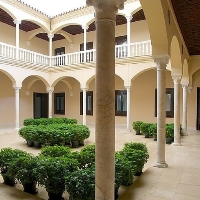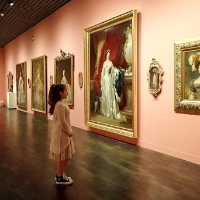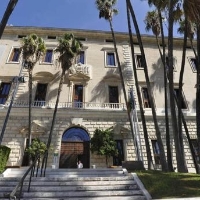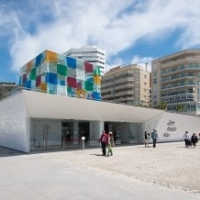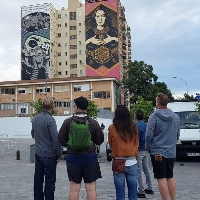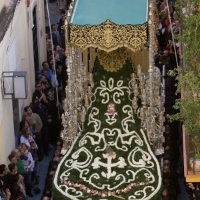Universidad de Málaga
HISTORY
The history of the UMA cannot be understood without Malaga: the impulse of the province on all fronts (citizens, personalities and media) would be key in the achievement of our University. The process began in 1968 with the creation of the "Asociación de Amigos de la Universidad de Málaga" (Association of Friends of the University of Málaga): organized to get the province to have its own university, it managed to make the Malaga society aware of its importance and to mobilize it until its foundation.
From there, a long process of progress began in which the creation of the University College of Malaga in 1971, and the grouping of the already existing School of Technical Engineers, School of Education, Faculty of Economics and Business (dependent at that time of the University of Granada) and Seminar, stood out.
Finally, on August 18th 1972, by means of a decree, the foundation of the University of Málaga was approved. The Faculty of Economics and Business and the Faculty of Medicine would be the first to become part of the global university that is today the University of Málaga.
With the aim of becoming a complete institution of the highest level, the UMA developed an expansion plan in terms of knowledge branches and infrastructure. In this way, once settled in the Campus of El Ejido, it was developed in the university city of Teatinos, area that at first would house the Faculties of Medicine, Philosophy and Letters and Sciences to gradually grow and become an increasingly complete campus in both academic offerings and university services.
While the UMA grew physically, it also grew qualitatively: since the end of the 90s, the strong commitment to new technologies and research stands out.
In this sense, the University of Málaga began a strategy to become a reference point for innovation and scientific development in southern Spain. Like as a result, it designs an extensive collaboration framework with the Andalusia Technology Park, multiplies its research projects both nationally and internationally and in 2007 enters the Spanish Supercomputing Network with the Picasso Supercomputer.
All this line of scientific and academic progress, combined with the efforts of researchers, students, teachers and administration staff, would lead to the University of Malaga (together with the University of Seville), to be recognized in 2010 as a Campus of International Excellence, under the brand Andalucía Tech.
Currently, the University of Malaga continues to be committed to scientific development and innovation as a way to bring progress to society as a whole. In these years, the promotion of mobility and the effort to attract international talent stands out, achieving an open and cosmopolitan university, capable of integrating itself in scientific projects of the highest level. 40 years later, it has more than 35,000 students, 58 Bachelor's degrees, 53 Master's degrees, 278 research groups and 45 patents registered in 2011.
Innovation, dynamism and internationalization are the principles that mark the history of the UMA and in turn, the basis established by the university to overcome current difficulties and strengthen its service for knowledge, society and the future.
Currently, the University of Málaga has two campus, located in two different geographical areas of the city:
CAMPUS OF TEATINOS
It is the nucleus of the university city and integrates most of the academic centers and services of the UMA. It is a modern and functional campus, very well communicated with the city center and a reference point for young life in Malaga.
With the recent extension of the campus and the construction of new buildings, the University of Málaga ensures a superior educational space, equipped with state-of-the-art facilities and laboratories that allow the development of our research and technological activity at the highest level.
CAMPUS OF EL EJIDO
Located next to the Historical Center of the city of Malaga, it is formed by the Faculties of Fine Arts, Economic and Business Sciences and the School of Architecture.
It also includes the University Government Pavilion, the University Auditorium and the Cánovas Theatre. Thus, the El Ejido Campus is an important space for knowledge and culture in the heart of the city.
Below are the main actions carried out in Master and European projects as well as specific subjects in different degrees that address the management and study of heritage.
MASTER'S DEGREE IN MANAGEMENT OF SPANISH LITERARY AND LINGUISTIC HERITAGE
Among its objectives are:
● To provide the scientific preparation corresponding to the field of Spanish Literature and Language, both for research and for professional practice.
● To provide internships in public and private companies that understand the different areas of professional and/or research projection of Spanish Literature and Language.
● To respond to the needs of cultural management in any social and geographical environment, both for public and private institutions.
● To attend to the study and dissemination of Spanish literary heritage from a multiple and interdisciplinary perspective.
MASTER'S DEGREE IN HISTORICAL AND LITERARY HERITAGE OF ANTIQUITY
The Master's Degree in Historical and Literary Heritage of Antiquity is a firm commitment to quality training and specialization in the major areas of knowledge dedicated to Classical Antiquity: Archaeology, Greek Philology, Latin Philology and Ancient History. The studies on classical antiquity, besides providing a historical education have also been in the forefront of research, scientific and didactic methodologies in our country. They offer, in addition to a qualified professional specialization, a civic and intellectual formation adapted to the characteristics and demands of today's society. In fact, the historical-political evolution of recent years shows the need to recognize, within the European Union, the diverse cultural identities that make it up. In this sense, historical, cultural and heritage knowledge constitutes a key element and the Mediterranean basin the ideal field of study, as a scenario for exchanges, conflicts and relations between East and West.
In order to achieve this objective, the knowledge areas involved in the teaching of the same propose the following basic, transversal and specific competences:
● A specialized training in contents and knowledge in the different fields of Classical Philology and History and Archaeology of Antiquity.
● A knowledge of the different sciences for the study of classical antiquity and its legacy (Numismatics, Epigraphy, Papyrology, Paleography, Codicology)
● To deepen in disciplines in which the study of the Antiquity is determinant (Art, Philosophy, History of Science, Medicine and Law, Religions or Gender).
● The advanced training of the student in the techniques and tasks of investigation, to facilitate the access to the Doctorate as culmination of the academic and research career.
● The ability to apply the knowledge acquired and to solve problems in new or little known environments within broader (or multidisciplinary) contexts related to their area of study.
● Capacity of organization and planning in the accomplishment of academic and professional works.
● Ability to reflect critically, define concepts and expose contents in the subjects related to the master's degree.
● To know and critically evaluate recent research results in the field of Archaeology, Ancient History and Classical Philology.
● To define topics and develop innovative research projects in the field of Ancient Sciences.
PROJECT 'EXPLORING EUROPEAN CULTURAL HERITAGE FOR FOSTERIING ACADEMIC TEACHING AND SOCIAL RESOPNSABILITY IN HIGHER EDUCATION (EU_CUL)
The project 'Exploring European Cultural Heritage for fostering academic teaching and social responsibility in Higher Education (EU_CUL)" brings together international researchers at the UMA to discuss European cultural heritage and the role of universities in its protection and conservation.
COORDINATING INSTITUTION: Dolnoslaska Szkola Wyzsza, Poland
PARTNER INSTITUTIONS: UNIVERSITY OF MALAGA; GOETEBORGS UNIVESITET (SWEDEN); OPEN UNIVERSITITY OF CYPRUS (CYPRUS) AND UNIVERSSITEIT LEIDEN FROM THE NETHERLANDS.
OBJECTIVE OF THE PROJECT:
The aim of EU_CUL is to recognize and enhance the potential of European cultural heritage for higher education by improving its educational and social dimension, to realize the idea of preserving cultural heritage and to foster a sense of European identity and culture.
The project focuses on supporting universities in three relevant dimensions:
1.Improving institutional capacity to create sustainable networks with external stakeholders involved in heritage promotion and preservation European culture for wider social benefits (third mission of universities and idea of social responsibility.
2.To promote the European dimension in education for a better understanding of the European context, the common heritage and the awareness of the diversity of the EU Member States.
3.To add an international dimension through collaboration and exchange of knowledge about the diversity of ECH, as well as the exchange of successful practices to improve teaching and the third mission of the university.
MASTER'S DEGREE IN TOURISM MANAGEMENT AND PLANNING
Elective course: Management and dissemination of cultural heritage (3 credits)
GRADE IN PRIMARY EDUCATION (Faculty of Educational Sciences)
Elective subject: Didactics of Andalusian Heritage and Culture.





